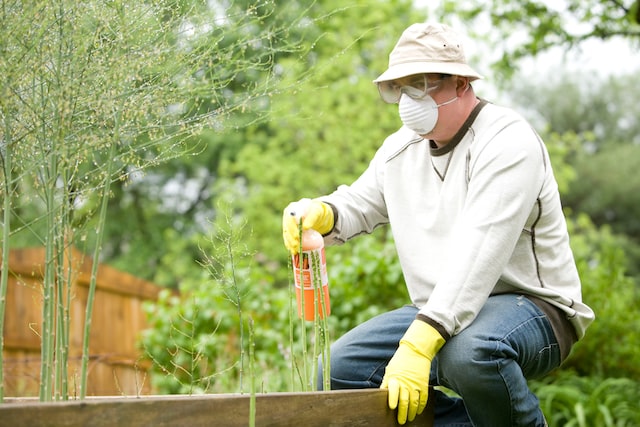
Image from Unsplash
While there is certainly satisfaction in ending a pest that you run into, it can still be an unnerving experience-especially if the pest is known to infest buildings like roaches and termites. This article is intended to explain the differences between reactive and proactive pest control and even highlight some times when each might be called for.
Reactive Control
This form of pest control involves ending the pest the moment that you notice its presence. It also tends to be what people resort to after an infestation has already managed to establish itself. Alternately, reactive pest control is when you need to call an exterminator from a company like https://www.pestcontrolexperts.com/aptive/massachusetts/ because you have come across evidence of an infestation, like an active wasp’s nest or a pile of termite frass (the technical term for insect droppings), or more than a few pests close to each other. One of the big problems with handling your pests reactively is that it will likely take more time, money, and effort to solve the issue than it might have had you paid attention to warning signs in and about your property.
It should be noted that contraptions like glue traps or bug zappers are reactive forms of pest control; they do nothing until the relevant pest comes close enough to inspect them and even then, their efficiency can diminish if not replaced or emptied.
Proactive/Preemptive Control
Proactive pest control involves setting up pre-emptive defenses and safeguards against pests. Basic examples of proactive pest control, that double as good practices in general, would be clearing food from kitchen surfaces and minimizing the potential access that pests might have to infiltrate the home.
Other types of proactive pest control would be baits and repellents that are routinely layered in and around your property. When sufficiently warded, this proactive form of control will keep many common household pests away from your home. At the end of the day, an ounce of prevention is worth a pound of cure.
The Distinction Between The Two Approaches
Reactive pest control is ultimately a defensive approach; you know that you have pests and are simply doing what you can to remove them. When framed in that context, it should be obvious that the best solution to dealing with pests is to go on the offensive-the offense in this case would be proactive control. While you might be able to handle some pest problems on your own, especially if you have researched the sort of pests that are common to your area, it may be best to hire a professional pest control service to take a comprehensive approach to the topic. One perk of hiring a professional is that they have a more robust education regarding what pests look for and might spot some issues that you had never considered or noticed.
Even when you consider pests in general, rather than just in the context of home defense, proactive control tends to be less risky and easier to establish. Swatting a single mosquito may work, but a blast of DEET over your body means never having to risk succumbing to one or more infected bites in the first place.
Bargain-Priced Pest Control Options
While a professional pest control solution is likely to be the best proactive form of pest control, even some effort is better than none. To that end, here are a few cheap or otherwise beneficial things you might consider for dealing with pests.
- Get a cat. There are breeds of cats designed for dealing with mice, rats, and other pests, but two problems with feline pest control are that the cat might chase pests into spots that are hard to pull them out or it might develop an injury or illness from the pest.
- Fake Wasp Nest. Wasps are territorial little menaces that will not build their nest near another nest. By hanging a fake nest high in a prime location during the winter, you could prevent wasps in the spring or summer.
Terminating Things
While you can usually find something to swat or squish a single pest, the best form of pest control, the kind that can handle an entire swarm or nest, is a proactive approach involving baits and repellents. Professional pest control is ideal.


